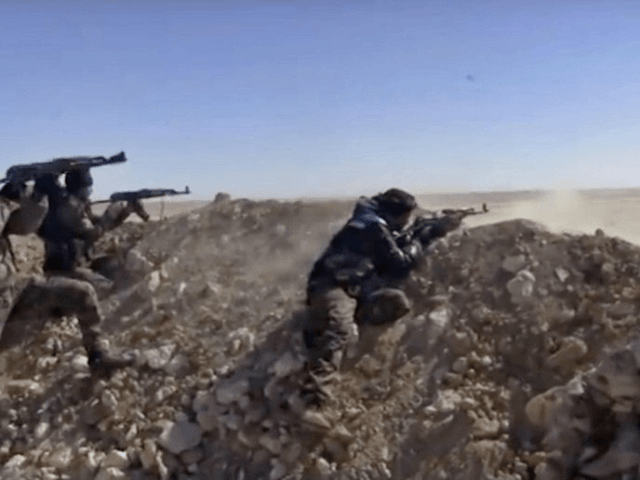The U.K.-based NGO Syrian Observatory for Human Rights (SOHR) reported this week that the Syrian Democratic Forces (SDF), a U.S.-backed Kurdish-Arab coalition, has taken back a quarter of the city of Raqqa from the Islamic State (ISIS).
ISIS declared Raqqa, Syria, the capital of its “caliphate” in 2014.
“Since the offensive began, the SDF have captured around 25 percent of the city’s built-up neighborhoods,” SOHR chief Rami Abdel Rahman told the Agence-France Presse this week. “They want to cut off the city’s northern part, including the Division 17 base, so that there’s more pressure on IS in the city center.”
The SDF had announced that it successfully ran the Islamic State out of the outskirt town of Al-Qadisia on Sunday and are still fighting to surround the city limits of Raqqa. Surrounding Raqqa is key to prevent Islamic State terrorists from fleeing the city and joining fellow jihadists in other battle hotspots throughout the region.
The Iraqi government is currently engaging in a simultaneous operation to liberate the other major ISIS stronghold in the region, northern Iraq’s Mosul city, a battleground that Raqqa fighters could potentially repopulate if not prevented from leaving the Syrian city.
“The SDF continues to fight, along with three axes, toward the center of Raqqa against substantial [IS] resistance,” Dillon added.
The Islamic State is using both conventional battle tactics and experimental attacks, such as manually-weaponized drones used in an attempt to bomb SDF locations. In conversation with France24, a female YPJ fighter estimates “15 to 16” drone attacks per day:
Two to three drones rotate every day here. They target our logistic lines and our ammunition depots. So far this morning, we have been bombed three times. By the end of the day, they will have targeted us 15 to 16 times. They do this every day.
The Pentagon announced in May that, in anticipation of the Raqqa battle, America would provide the YPG/YPJ weapons directly. “The SDF, partnered with enabling support from U.S. and coalition forces, are the only force on the ground that can successfully seize Raqqa in the near future,” a Pentagon spokesperson explained.
The YPG/YPJ are an anti-ISIS, pro-American force that has cooperated for years with American troops, providing intelligence used to conduct airstrikes on Islamic State targets.
The YPG also collaborates with the Russian government on occasion and, some allege, has ties to the Kurdistan Workers’ Party (PKK), a U.S.-designated Marxist terrorist group. The Turkish government considers the YPG as indistinguishable from the PKK and sternly objected to the U.S. providing the militia weapons.
Ankara fears that the YPG will attempt to establish an independent Kurdistan in Rojava, the Syrian Kurdish territory that borders Turkey. In remarks Monday, President Recep Tayyip Erdogan protested that he was “never going to allow a terrorist state to be established” and that Turkey “will make the real owners of those weapons … pay for any bullet that will be fired to our country,” apparently referring to the United States.
Last week, the Turkish government claimed that Secretary of Defense James Mattis had promised that the U.S. was merely lending weapons to the YPG and would take them back once Raqqa falls. The Turks have demanded a role in retrieving these weapons, with Defense Minister Fikri Işık stating that Ankara will pursue the establishment of a “joint mechanism” to get the weapons back.
While Col. Dillon confirmed that Mattis sent a letter to the Turkish government on Friday, he did not confirm the claim that the U.S. is planning on retrieving weapons handed to the Kurdish forces.

COMMENTS
Please let us know if you're having issues with commenting.